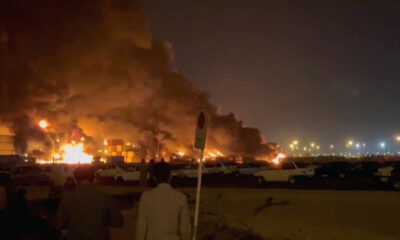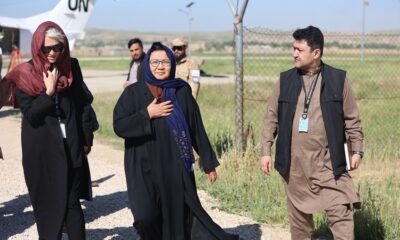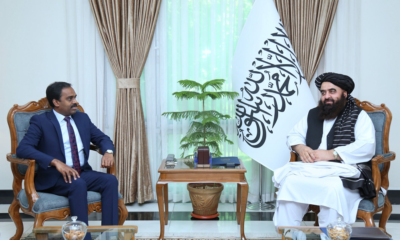Latest News
U.S. ends 20-year war in Afghanistan with final evacuation
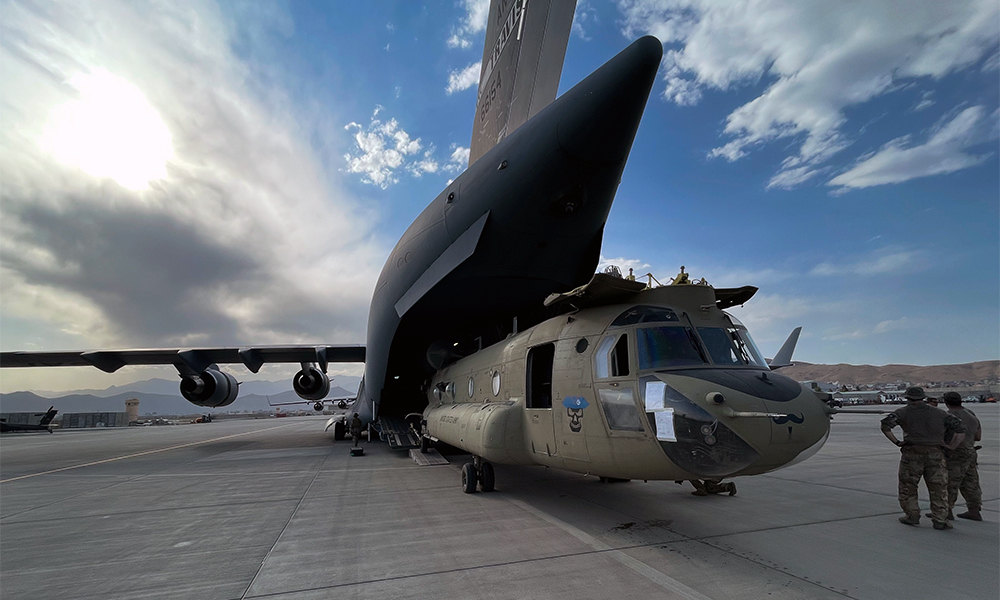
The United States on Monday completed its military withdrawal from Afghanistan after a huge but chaotic airlift that cost the lives of 13 U.S. troops and left behind thousands of Afghans and hundreds of Americans still seeking an escape from Taliban rule, Reuters reported.
According to Reuters in a first in the nearly 20 years since al Qaeda’s Sept. 11, 2001, attacks plunged the United States into war, not a “single service member” from the U.S. military was in Afghanistan, the Pentagon said in an afternoon news conference.
“Heartbreak” was the word that U.S. Marine General Frank McKenzie used as he described emotions surrounding the U.S. departure from its longest war after dangerous and tireless efforts by U.S. troops to evacuate American citizens and vulnerable Afghans.
“There’s a lot of heartbreak associated with this departure. We did not get everybody out that we wanted to get out,” McKenzie, the head of the U.S. Central Command, told a Pentagon news briefing.
The top U.S. diplomat in Afghanistan, Ross Wilson, was aboard the last C-17 military transport flight out of Kabul’s airport at 11:59 p.m. Kabul time, along with the commanding general of the U.S. military’s 82nd Airborne Division, Reuters reported.
More than 122,000 people have been flown out of Kabul since Aug. 14, the day before the Taliban – which harbored the al Qaeda militant group behind the 2001 attacks on New York and Washington – regained control of the country.
“But I think if we’d stayed another 10 days, we wouldn’t have gotten everybody out,” McKenzie said.
As the U.S. troops departed, they destroyed more than 70 aircraft, dozens of armored vehicles and disabled air defenses that had thwarted an attempted ISIS-K, locally known as Daesh rocket attack on the eve of the U.S. departure, Reuters reported.
Having failed to anticipate the Taliban would prevail so quickly, Washington and its NATO allies were forced into a hasty exit, leaving behind thousands of Afghans who helped them and may have qualified for evacuation and others who feel at risk.
The emergency air evacuation came to an end a minute before a Tuesday deadline set by President Joe Biden, who inherited a troop withdrawal deal made with the Taliban by his predecessor, Donald Trump, and decided to complete the pullout without preconditions.
Biden’s decision has led to the biggest crisis of his young presidency and raised far-reaching questions about the capability of Western democracies to build lasting institutions in their image overseas, and their willingness in the future to do so, Reuters reported.
The swift Taliban takeover of Afghanistan has drawn comparisons to the capture of Saigon by North Vietnamese forces in 1975 and shaken generations of U.S. veterans who served there and watched the wars’ final days with sadness.
Biden, in a statement, commended U.S. troops for carrying out the largest airlift in U.S. history “with unmatched courage, professionalism, and resolve.” “Now, our 20-year military presence in Afghanistan has ended,” he said.
According to the Reuters nearly 2,500 Americans have been killed in the conflict, including 13 troops in a suicide bombing by ISIS-K, locally known as Daesh, last week outside the airport. Many of them were just babies when the Sept. 11, 2001, attacks took place.
McKenzie said the Taliban helped secure the airfield as the United States carried out the evacuation. But he cited a rare convergence of interests: The Taliban wanted the United States out of Afghanistan, and the United States wanted to leave, Reuters said.
But he warned that the Taliban would have difficulty grappling with ISIS-K, a fierce enemy of both the West and the Taliban. He declined to speculate about future cooperation with the Taliban following the U.S. departure, even as Biden has promised to hunt down Islamic State militants responsible for last week’s bombing.
“They (the Taliban) let a lot of those people … out of prisons and now they’re going to be able to reap what they sow,” McKenzie said.
The withdrawal opens a new chapter in the U.S. effort to keep pressure on groups it sees as mortal enemies, including ISIS-K,and al Qaeda.
Following the suicide attack last week, the U.S. military flew in drones for strikes in Afghanistan on Friday and Sunday to attack ISIS-K. Experts warn that U.S. intelligence is far harder to collect from overseas and strikes are more risky, Reuters reported.
Latest News
UNAMA chief visits northern Afghanistan, meets local officials including women
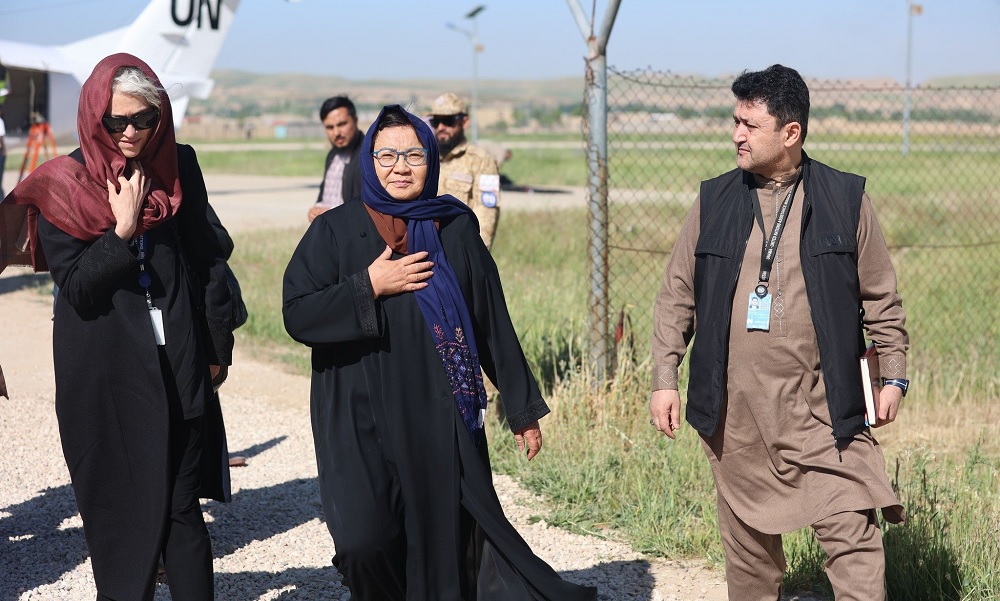
Roza Otunbayeva, Head of the United Nations Assistance Mission in Afghanistan (UNAMA), recently visited the city of Maimana in northern Afghanistan, where she met with local officials, entrepreneurs, and UN staff.
UNAMA wrote on its Facebook page on Sunday, that during the visit, entrepreneurs — including women — met with Otunbayeva, and requested support to facilitate access to new markets, particularly in Uzbekistan.
UNAMA further stated that among these entrepreneurs was a group of women who, with the support of the United Nations Development Programme (UNDP), had established a tailoring workshop.
They expressed their appreciation for the support received and spoke about the significant growth and development of their business.
UNAMA added that the organization remains committed to promoting economic opportunities and empowering Afghan communities, especially women.
Latest News
Senior Indian official meets with FM Muttaqi in Kabul
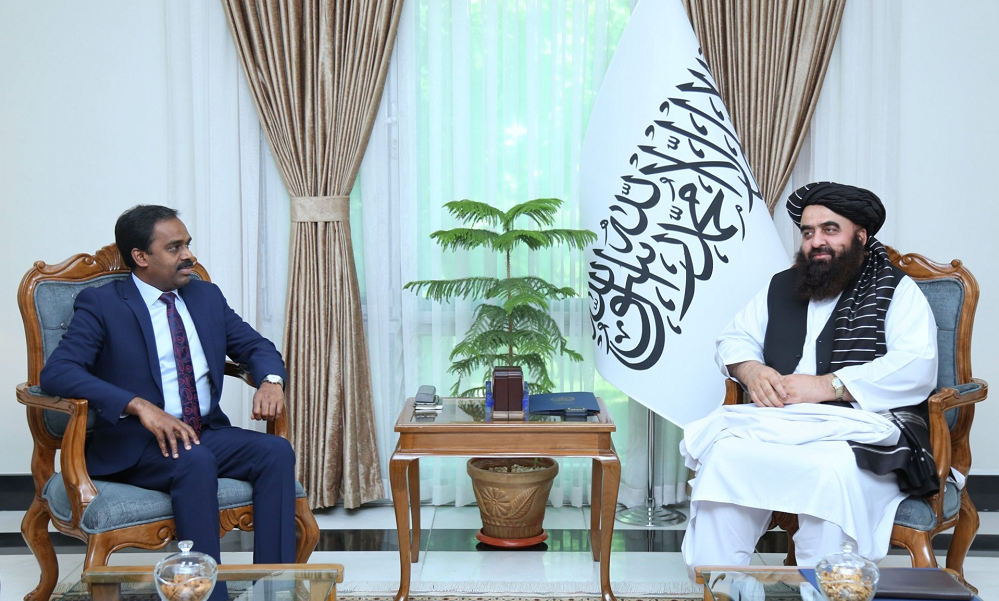
Anand Prakash, head of the Afghanistan, Iran and Pakistan Division of the Indian Ministry of External Affairs, met with Acting Foreign Minister Amir Khan Muttaqi in Kabul for talks on various issues.
According to a press release issued Sunday by the Afghan Foreign Ministry, bilateral political relations, trade, transit and recent political developments in the region were discussed in the meeting.
Muttaqi stressed the need for the expansion of diplomatic and economic relations between the two countries and explained that Afghanistan currently offers favorable opportunities for investment. He said Indian investors should take advantage of these opportunities.
He also said that facilities should be created for the movement of people between Afghanistan and India and the issuance of visas for medical purposes, students and businessmen should return to normal.
Meanwhile, Prakash said that relations with Afghanistan are important for India and he hopes that these relations will expand further in various fields.
He stressed that India will continue its cooperation with Afghanistan and wants to invest in some infrastructure projects and restart projects that were paused for some time.
The two sides also emphasized the expansion of relations, the exchange of delegations, visa facilitation and bilateral cooperation.
Latest News
Afghanistan ‘fully ready’ for Trans-Afghan railway project: Muttaqi
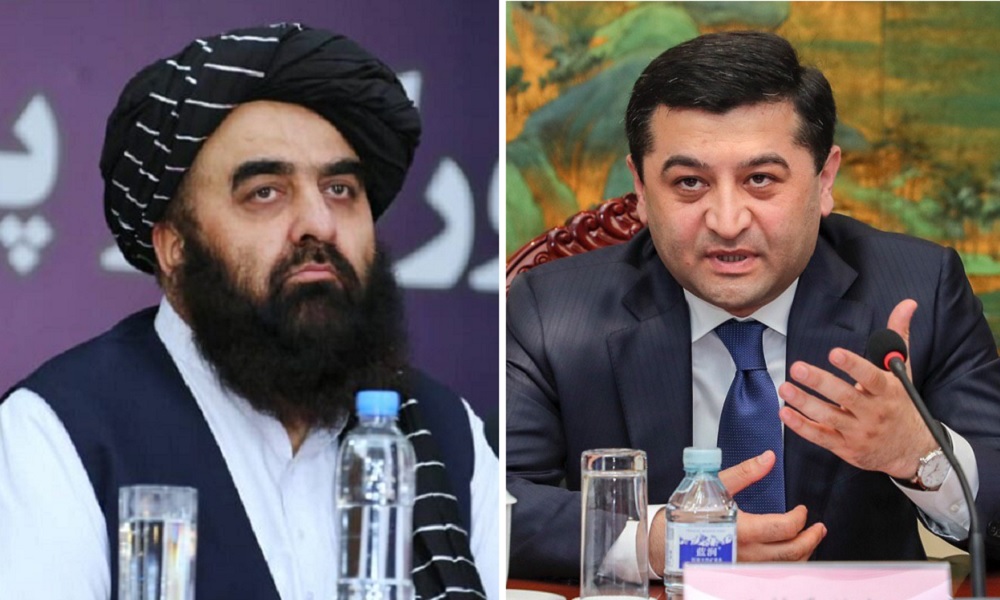
Acting Foreign Minister Amir Khan Muttaqi has said in a phone call with his Uzbek counterpart that Afghanistan is fully prepared for the implementation of the Trans-Afghan railway project.
During the call, the two sides discussed strengthening bilateral and multilateral relations, as well as expanding political, economic and transit cooperation, the Ministry of Foreign Affairs in Kabul said in a statement on Sunday.
Uzbek Foreign Minister Bakhtiyor Saidov noted that Afghanistan’s exports to Uzbekistan have tripled in the first four months of 2025 compared to last year. He vowed to create more facilities in the field of trade and transit between the two countries, especially in issuing visas to Afghan citizens.
Meanwhile, Amir Khan Muttaqi said that Afghanistan is fully prepared for the implementation of major economic projects such as the Trans-Afghan railway project and for the strengthening of political, trade and transit cooperation with Uzbekistan. He said that the existing opportunities should be utilized for the mutual benefit of the two countries.
The two sides also discussed the holding of a trilateral meeting between Afghanistan, Uzbekistan and Pakistan at the level of foreign ministers and agreed to coordinate through diplomatic channels to determine the exact date and place of the meeting.
The three neighboring countries signed an agreement in February 2021 to construct a 573-kilometer railway line through Afghanistan, connecting landlocked Central Asia to Pakistan seaports, with an estimated cost of $4.8 billion to enhance regional economic connectivity.
Pakistan’s Deputy Prime Minister and Foreign Minister Ishaq Dar held a telephone conversation with Uzbek foreign minister last Thursday to discuss the Trans-Afghan railway project.
Dar expressed hope that the three countries would soon sign a framework agreement on this important regional project.
-

 Sport5 days ago
Sport5 days agoSri Lanka A defeats Afghanistan A by 4 wickets in Abu Dhabi
-

 Business5 days ago
Business5 days agoAfghanistan’s growth prospects remain uncertain amid global uncertainty: World Bank report
-

 Latest News4 days ago
Latest News4 days agoAWCC activates new site in Nangarhar’s Kuz Kunar district
-

 Latest News4 days ago
Latest News4 days agoTarig Ali Bakheet and Japan’s Deputy Foreign Minister discuss Afghanistan’s situation
-

 Climate Change5 days ago
Climate Change5 days agoPowerful earthquake of 6.2 magnitude shakes Istanbul
-

 Business4 days ago
Business4 days agoPakistan’s deputy PM discusses Trans-Afghan Railway Line project with Uzbek FM
-

 Latest News5 days ago
Latest News5 days agoSpecial meeting will be held to launch Afghanistan–Russia joint commission, says Kabulov
-

 Latest News4 days ago
Latest News4 days agoAfghan delegation to participate in Iran’s international expo




